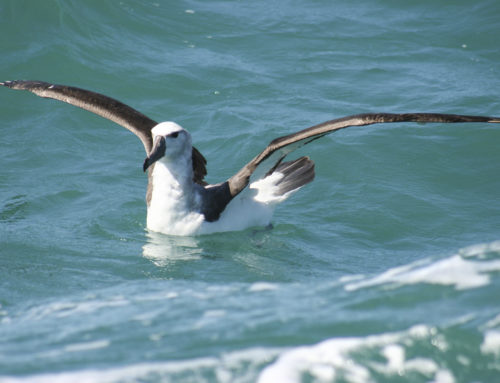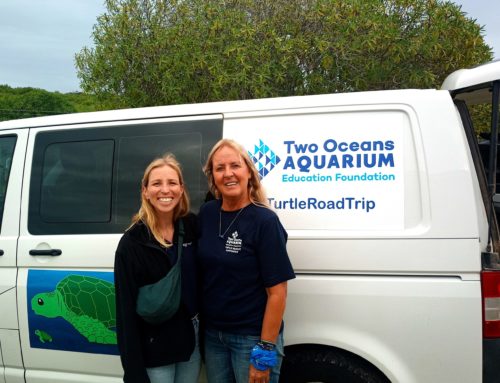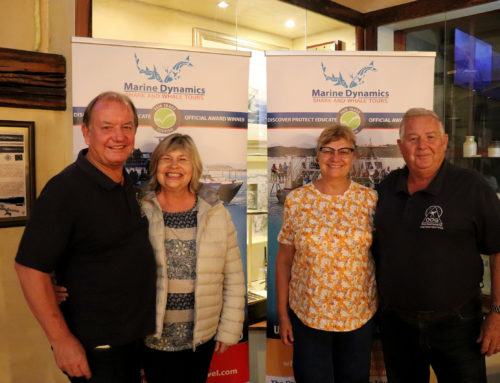Trust hosts leading scientists
June 11, 2012 by dyertrust
Trust hosts leading scientists at Second African Marine Mammal Colloquium – 21-24 May 2012
Critically important new conservation initiatives introduced
Researchers from 22 organizations recently met at, The Great White House, Gansbaai headquarters of the Dyer Island Conservation Trust (DICT)to discuss the research urgently needed to protect important populations of marine mammals including whales and dolphins, currently coming under significant pressure in the seas around the continent.
Speaking at the Colloquium, organized by the Mammal Research Institute (MRI) and hosted by DICT, Prof Ken Findlay of the MRI said: The future of marine mammal populations in these oceans is at a tipping point. There are many important questions to which we simply do not know the answers making it very difficult, if not impossible, to develop effective conservation policies. We need these strategies now; so we must very quickly invest significantly more in research to protect these increasingly threatened populations.
Some new research initiatives were announced at the meeting:
A Southern African network is being established to collect valuable data from marine mammals stranded on our shores. Scientists will collect scientific samples which will be added to a national database evaluating the effects on marine mammals of marine pollution, shark nets and collisions with ships. The public is being encouraged to assist by immediately calling in scientists when they find a stranded animal.
The South African Blue Whale Project, funded by the South African National Antarctic
Programme and the National Research Foundation, will for the first time investigate the little-known population of Blue Whales off the southwestern Cape coast. Although they are the largest mammal which has ever lived on the planet little is known about them. Using state-of-the-art techniques the survey will generate critically important information on the population dynamics allowing conservation and protection programmes to be developed.
The internationally renowned African Mammal Atlas Project is to be extended to include marine mammals as well as those found on land. According to Dr Tali Hoffman of the Animal Demographic Unit at the University of Cape Town, this information will help to identify marine areas that need to be protected in order to preserve biodiversity and help to focus scarce conservation resources.
Following the meeting, Wilfred Chivell, Chair of the DICT, said: Once again this Colloquium highlights the valuable research being conducted on marine mammal populations in Africa. However it also underlines important gaps which exist in our knowledge at a time when we urgently need to protect and conserve populations of whales, dolphins, and other marine mammals. The pressure on these populations is increasing daily. For example, here in Gansbaai we face the challenge of the proposed construction of the nuclear power station at Bantamsklip, in an area of outstanding importance as it is a major breeding ground of the Southern Right whale and the home of populations of dolphins. Yet, we simply do not know what impact the nuclear power station could have on these mammals and we will not find out until it is too late unless we urgently conduct research.
Only privately displayed Southern Right Whale skeleton unveiled
At the beginning of the Colloquium, which was opened by Councilor Peter Scholtz Deputy Mayor of the Overstrand, South Africa’s first privately displayed Southern Right whale skeleton was unveiled. The 14 meter skeleton, is suspended from the roof of the Great White House where it can be viewed the public.




